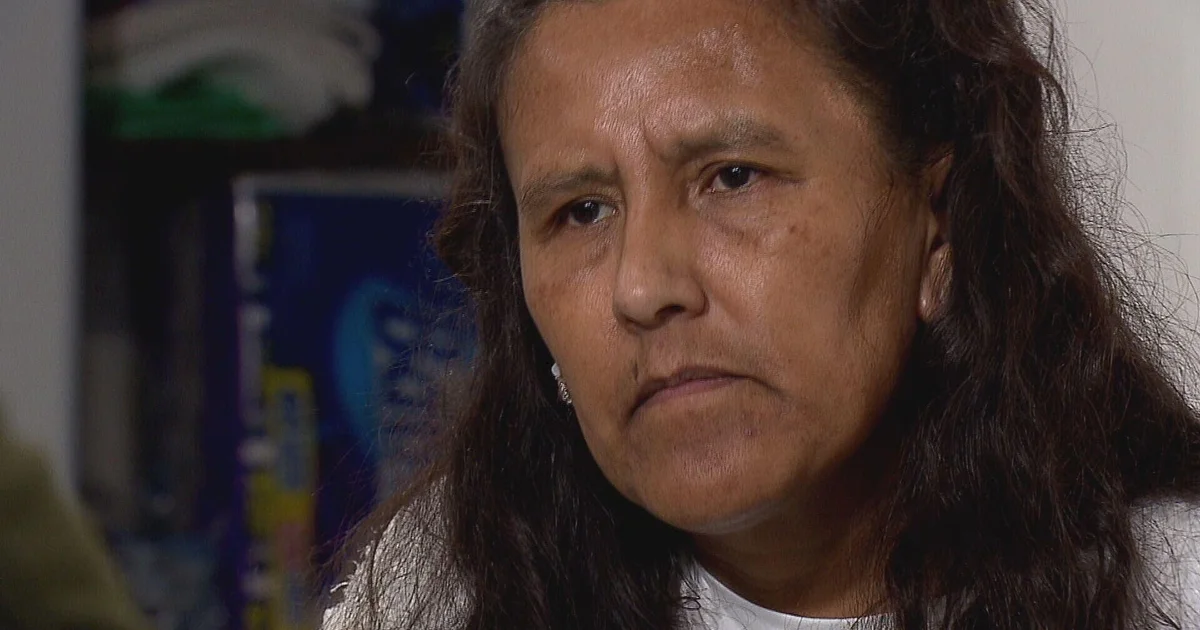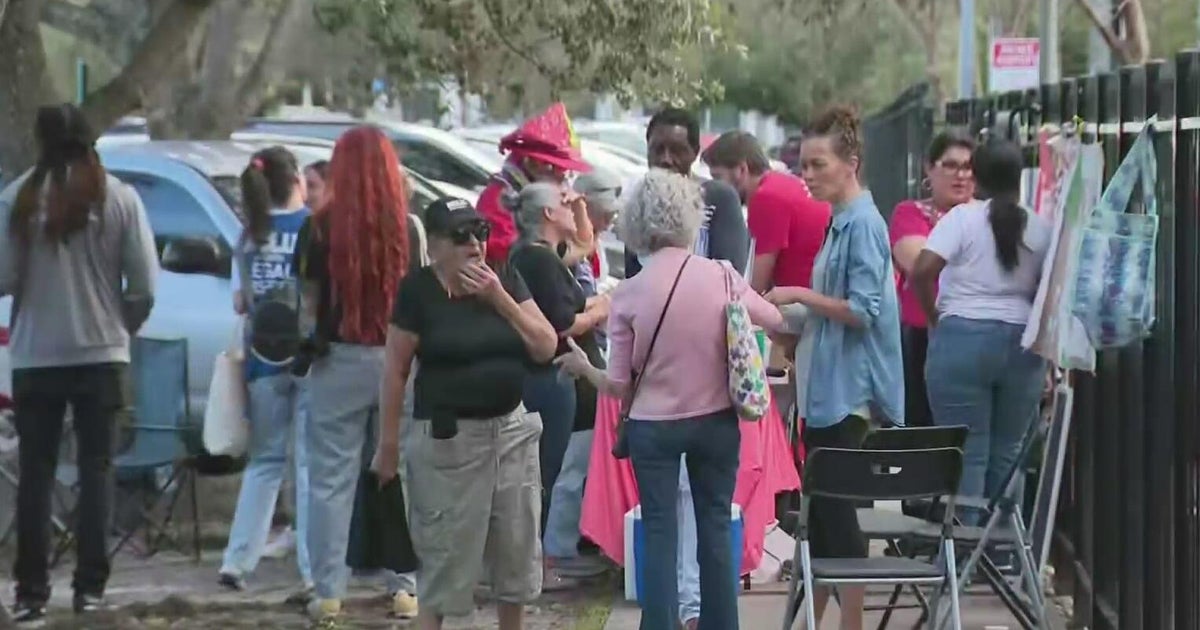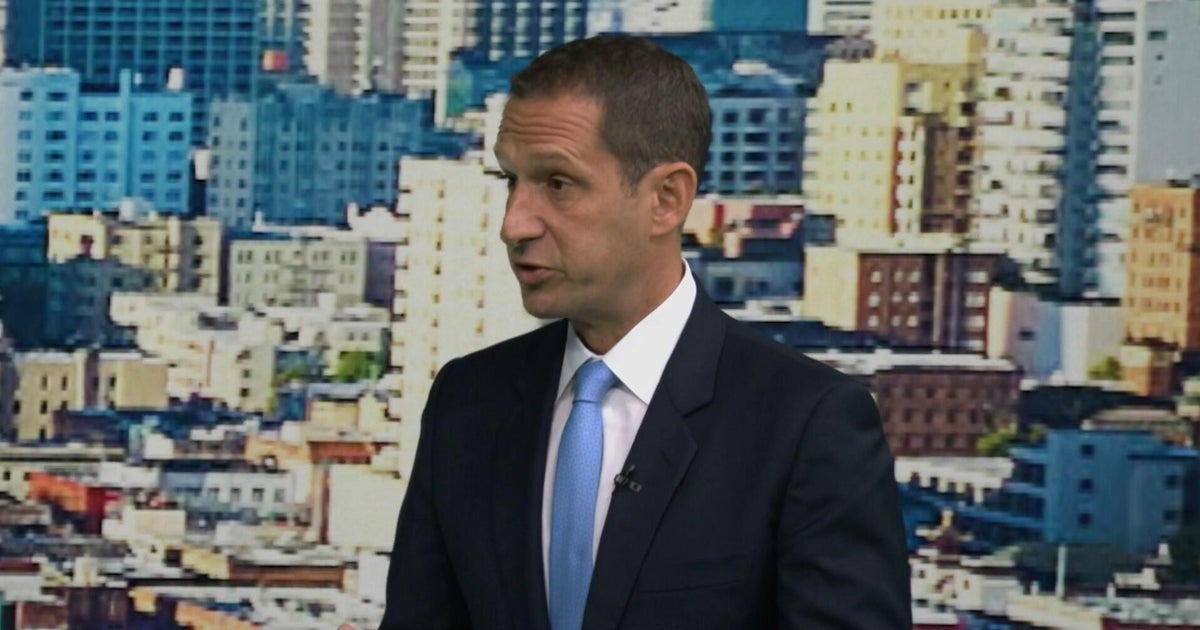Advocates urge judge to bar Alien Enemies Act expulsions of migrants they say face imminent deportation
Advocates on Friday filed an emergency motion asking a federal judge in Texas to bar the Trump administration from deporting a group of Venezuelan migrant detainees they said are at risk of being expelled under the Alien Enemies Act, the 18th-century wartime law at the center of a legal battle.
The American Civil Liberties Union asked U.S. District Court Judge James Wesley Hendrix to issue a temporary restraining order preventing officials from using the Alien Enemies Act to deport Venezuelan men detained at an immigration detention center in Ansen, Texas, located within his judicial district.
The ACLU said it heard from lawyers and relatives of some of the men held at the Ansen detention facility that their clients and loved ones had been given notices telling them they were slated to be deported under the wartime law. The organization, relying on declarations from lawyers and advocates, said the men were accused of being members of Tren de Aragua, the Venezuelan gang President Trump has made into a focal point of his crackdown on illegal immigration.
Citing the March 15 deportations of scores of migrants who were taken to El Salvador's notorious Center for the Confinement of Terrorism, or CECOT, mega-prison, the ACLU implored Hendrix to act quickly.
"(G)iven the brutal nature of the Salvadoran prison where other Venezuelan men were sent under the (Alien Enemies Act) last month, the irreparable harm to them is manifest," the ACLU's emergency motion said.
Asked about the ACLU's filing, Department of Homeland Security spokeswoman Tricia McLaughlin said, "For the safety of our law enforcement, we cannot disclose details about upcoming removal and deportation operations."
The Department of Justice has not filed a response in court as of Friday early afternoon.
Mr. Trump invoked the Alien Enemies Act in March to order officials to immediately detain and remove Venezuelan migrants with alleged ties to Tren de Aragua, arguing that they were invading or staging an incursion into the U.S. The law had previously only been invoked three times in U.S. history, including during World War II, when it was used to justify the detention of noncitizens from Italy, Germany and Japan.
The administration used the wartime law to deport many of the 238 Venezuelans it sent to El Salvador on the weekend of March 15, so they could be imprisoned at the CECOT prison. The operation quickly ignited a legal battle that led a federal judge earlier this week to find the administration in "criminal contempt" for ignoring his directive to turn around the deportation flights transporting the detainees.
While the Trump administration called the deportees sent to El Salvador terrorists, criminals and gangsters, a 60 Minutes investigation could not find criminal records for 75% of the 238 Venezuelan men imprisoned at CECOT as part of the March 15 operation.
Earlier this month, the U.S. Supreme Court allowed the Trump administration to carry out expulsions under the Alien Enemies Act but only if it provided notices to detainees that allowed them to challenge their detention in federal court before any deportation.
Since then, the ACLU has convinced federal judges in New York, Colorado and Texas to temporarily block officials from citing the wartime powers to deport migrants detained in their judicial districts. But Hendrix on Thursday declined to issue a similar order for the Northern District of Texas, where the Ansen facility is located.
In one of the declarations filed by the ACLU on Friday, an attorney for the Legal Aid Society said her client, held at the Ansen facility, told her he had been informed officials are accusing him of being a Tren de Aragua member and that he would be deported as an "alien enemy." The attorney said her client refused to sign papers he was given by detention facility staff because they were in English and he could not understand what they said.
Another declaration identified a Venezuelan teenager held in Ansen as one of those at risk of being deported. His attorney said his client had been questioned by immigration authorities about a Facebook photo with a water gun after he was arrested in March, alongside his father.








